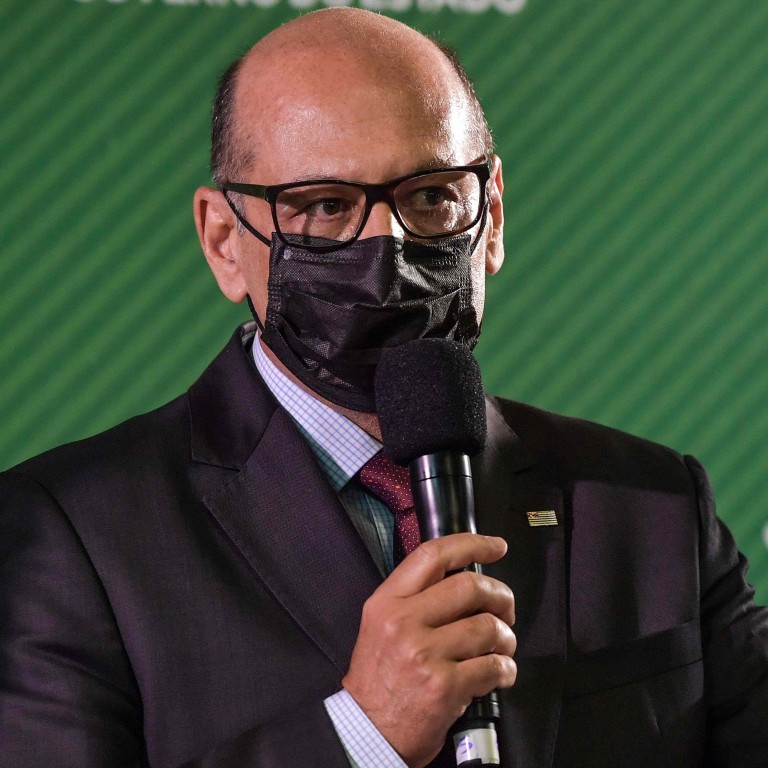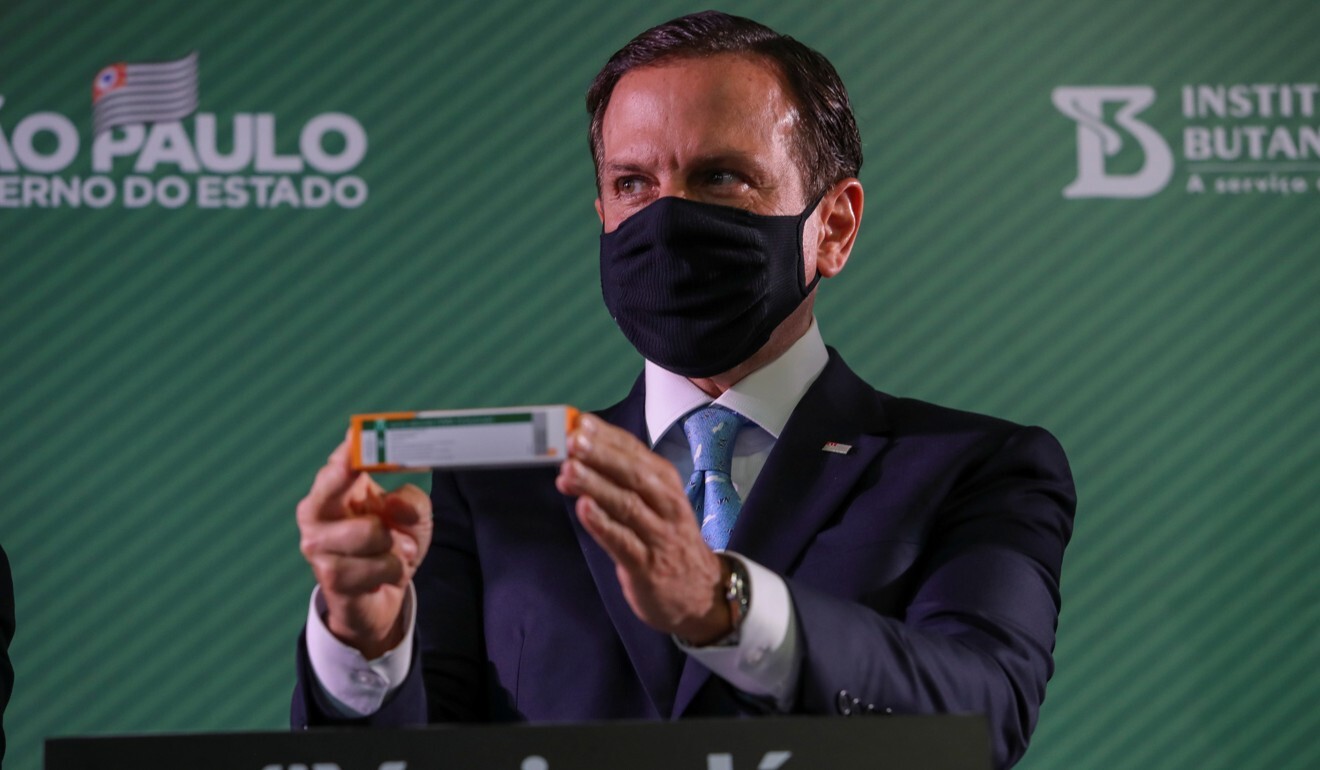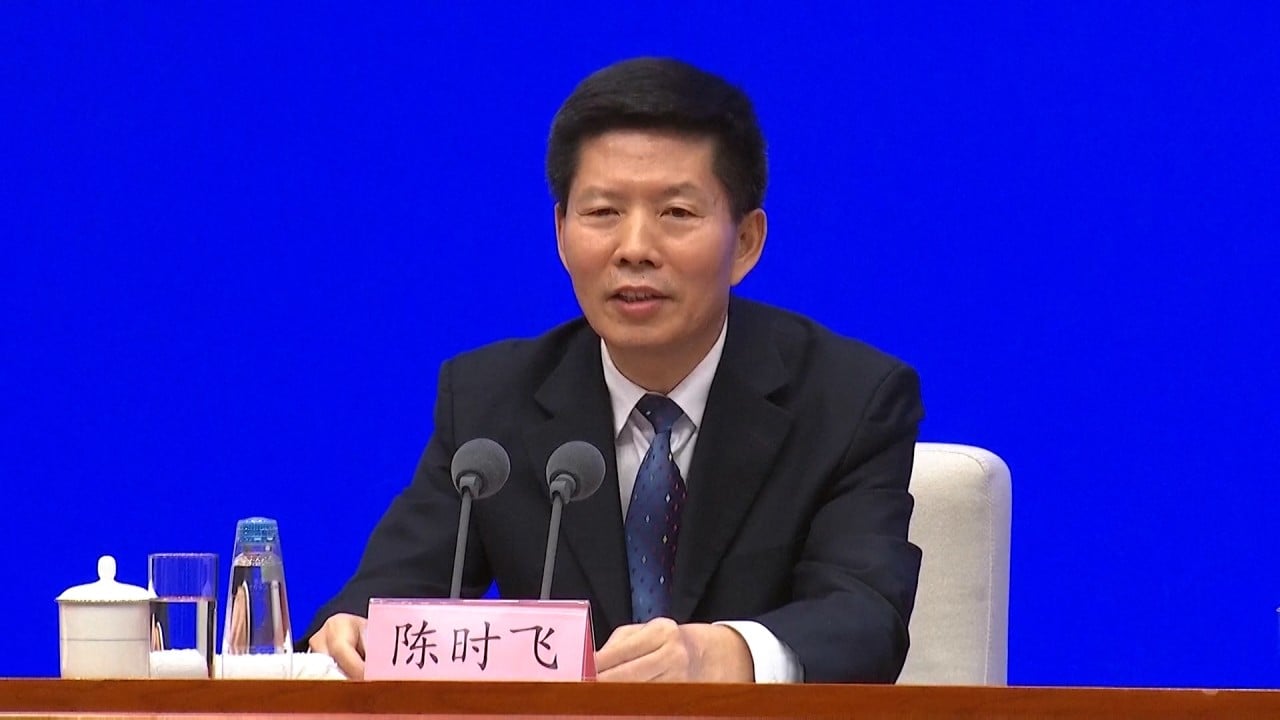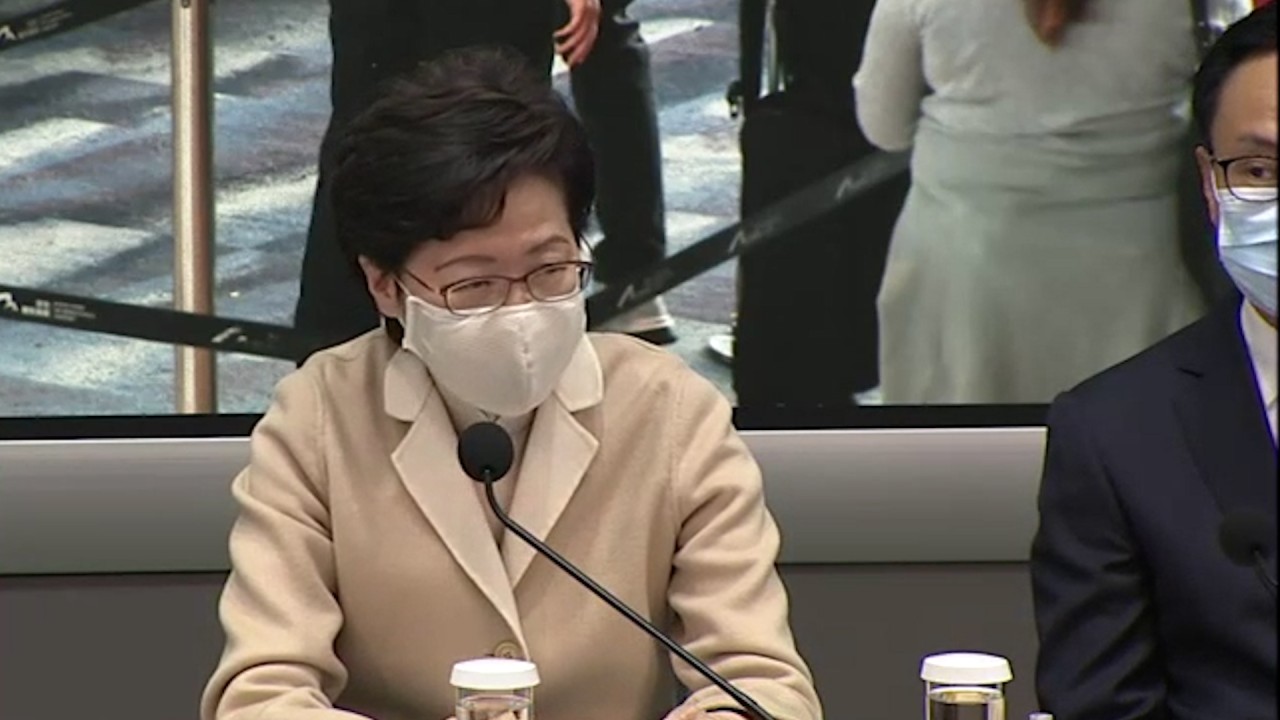
Coronavirus: a Sinovac Biotech vaccine is seen as 78 per cent effective in Brazil
- Sao Paulo state government announcement paves the way for emergency use approvals and roll-out in array of countries and regions, including Hong Kong
- It comes after interim data showed 79 per cent efficacy for another Chinese vaccine, developed by Sinopharm
A vaccine made by Sinovac Biotech has been found to be 78 per cent effective against Covid-19 in late-stage trials in Brazil, making it the second Chinese vaccine that has passed minimum efficacy requirements by most regulators.
The announcement made by the Sao Paulo state government paves the way for the emergency use approvals and imminent roll-out of the Sinovac vaccine, CoronaVac, in an array of countries and regions, including Hong Kong, that have already placed orders.
China is also expected to fast-track conditional approval for general use of the vaccine.
CoronaVac was found to be 78 per cent effective in preventing mild cases of Covid-19 and 100 per cent effective against severe and moderate infections, according to a statement posted by the Sao Paulo government.
“Among those immunised during clinical tests and who contracted the virus, none had a severe or moderate case of the disease or needed hospitalisation,” it said.

That efficacy level, the statement added, “means that for every hundred volunteers who contracted the virus, only 22 had only mild symptoms, but without the need for hospitalisation”.
The findings are based on trials involving 12,400 health care workers, it said.
The number is smaller than the usual size of 30,000 for phase 3 trials, but there are still trials under way in Turkey, involving more than 7,300 people, Indonesia and Chile.
Another Chinese vaccine, produced by a subsidiary of state-owned conglomerate Sinopharm, reported efficacy of 79 per cent in its interim trial results.
Coronavirus: China says it can produce 1 billion doses of a Sinopharm vaccine this year
Both Sinovac and Sinopharm’s treatments are traditional inactivated vaccines, which use a dead virus to help the body develop an immune response. But both efficacy rates are lower than the two mRNA vaccines developed by Pfizer-BioNTech and Moderna, which have an efficacy level of around 95 per cent.
Sinovac’s Brazilian partner, a medical research arm of the Sao Paulo state government called the Butantan Institute, has already applied for emergency use approval from the country’s health regulatory agency Anvisa.

01:35
China approves first domestically developed Covid-19 vaccine
Dimas Covas, director of the Butantan, which partnered with Sinovac in the trials and production, was quoted by Bloomberg as telling a news briefing on Thursday that about 220 participants in the trials were infected with Covid-19 – 160 in the placebo group and almost 60 among those who received the vaccine.
The announcement provided some clarity concerning the efficacy of the shots, which have been under scrutiny after Brazil delayed releasing the findings of its trials twice last month at Sinovac’s request.
Sinovac Biotech’s CoronaVac vaccine above 50 per cent efficacy, says Brazilian institute
The first time was on December 15, because the company wanted to wait for 151 infections to have a final analysis instead of an interim one; the second, on December 23, came after the company said it wanted to wait for findings from Indonesia and Turkey to provide a global figure.
Turkey has earlier said CoronaVac has shown to be 91 per cent effective against Covid-19, but the finding was controversial as it was based on data from only 1,322 volunteers.
The announcement on Thursday did not include data from Indonesia and Turkey.
Sinovac’s Indonesian partner Bio Farma said interim data from its trials, which involved 1,620 volunteers, would be ready this month, but final efficacy data would only be ready in May or June.
The delays have raised concerns over the transparency of the data. But many countries and areas went ahead and placed orders after Brazil said on December 23 that the efficacy had passed 50 per cent, the threshold required by most regulators.
After Sao Paulo’s announcement, Brazilian Health Minister Eduardo Pazuello said the country would buy up to 100 million doses of the Sinovac shot, including a previous order of 46 million doses.
Sinovac said earlier it aimed to have an annual production capacity of 60,000 doses by the end of 2020.
Turkey has placed an order for 50 million doses, while in Southeast Asia, Thailand has ordered 2 million doses, Indonesia has bought 3 million and the Philippines wants to buy 25 million doses.
Sinovac’s Indonesian partner Bio Farma is planning to receive 140 million doses of CoronaVac in bulk and fill them in vials this year.
Hong Kong is also buying 7.5 million doses from Sinovac as part of a vaccine portfolio that includes the Pfizer-BioNTech and Oxford-AstraZeneca vaccines as well.

03:49
Hong Kong secured enough Covid-19 vaccines to cover all residents, city leader Carrie Lam says
The vaccine developed by Sinopharm’s Beijing Institute of Biological Products subsidiary was given conditional approval for general use by Chinese regulators on December 31; it has been rolled out in Middle Eastern countries including the United Arab Emirates and Bahrain.
Peru announced it planned to buy 38 million doses from Sinopharm; Mexico has approved a vaccine by Oxford-AstraZeneca but is also planning to buy from Sinopharm and another Chinese company, CanSino.
Sinovac and Sinopharm’s inactivated vaccines have a logistical advantage over the advanced mRNA vaccine developed by Pfizer-BioNTech, which requires deep freezing.
China has already used its domestically produced vaccines to inoculate more than 3 million people and is planning to vaccinate 50 million people in high-priority groups before mid-February.

